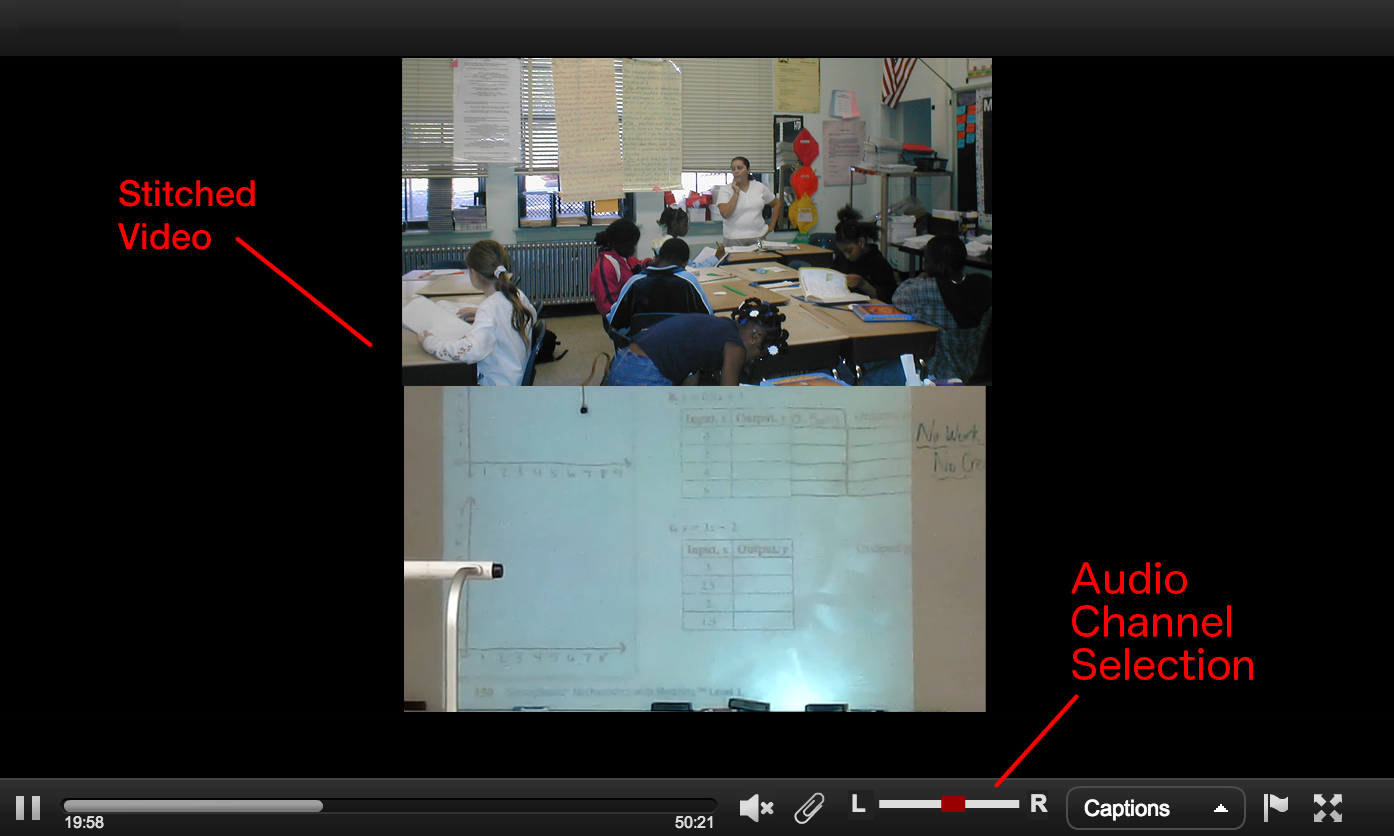METX Overview
The Measures of Effective Teaching Extension (METX) Collection includes classroom footage and scanned lesson artifacts captured during the 2011-2012 and 2012-2013 academic years. The METX project enlisted more than 350 teacher volunteers from six school districts, collecting video and other artifacts of everyday classroom activities that document thousands of lessons. This was a large-scale effort to create a rich resource for educators and researchers that will contribute to the improvement of teaching and learning. The recorded lessons in the METX collection include a variety of English Language Arts and Mathematics classroom topics as well as a range of lessons and activities. Many of the videos have been tagged using a tag scheme based on the Common Core State Standards and the TeachingWorks High Leverage Practices. The collection also includes an array of lesson artifacts—teacher lesson plans, worksheets and handouts, homework assignments, and images of board work.
Collection Background
The METX collection is an extension of the Measures of Effective Teaching (MET) Project that was launched in 2009 by the Bill and Melinda Gates Foundation. The original MET project aimed to develop and test multiple measures of teacher effectiveness in order to identify and promote great teaching. The MET project examined classroom observations (using video), student surveys, tests of teachers’ pedagogical content knowledge, and analyses of student assessment data to track achievement gains over time. One aim of this analysis was to provide tailored feedback for teachers to improve their practice and to serve as the basis for more targeted professional development.
This first MET project, which ran during the 2009-10 and 2010-11 academic years, involved close to 3,000 teacher volunteers from 317 schools across six, predominantly urban, school districts including: Charlotte-Mecklenburg Schools, Dallas Independent School District, Denver Public Schools, Hillsborough County Public Schools, Memphis City Schools, and the New York City Department of Education.
Contributing Partners
The Bill & Melinda Gates Foundation provided a grant to fund the development of the METX video library. Westat contributed to video capture and tagging activities. Several University of Michigan departments collaborated to carry out this effort, including: Education and Well Being Program and Survey Research Operations at the Institute for Social Research; Inter-University Consortium for Political and Social Research (ICPSR); School of Education; TeachingWorks; and University of Michigan Library.
The Bill & Melinda Gates Foundation provided a grant to fund the development of the METX video library. Westat contributed to video capture and tagging activities. Several University of Michigan departments collaborated to carry out this effort, including: Education and Well Being Program and Survey Research Operations at the Institute for Social Research; Inter-University Consortium for Political and Social Research (ICPSR); School of Education; TeachingWorks; and University of Michigan Library.
Unique Views
The METX collection features authentic classroom videos. Not only are the videos and audios minimally edited, capturing and portraying education practice as it played out in real time, but the videos were recorded using a custom rig with two small consumer cameras mounted to document the front "board" area and the larger classroom space along with two small microphones to capture both teacher and student voices. Users of this site will be able to simultaneously view both videos, stacked on top of each other, in a "stitched" format. Additionally, members can use the audio channel selection tool on the video player to select between or mix the microphones they prefer to hear. If preferred, users can also view the footage from the two cameras separately with only the audio associated with that camera.

